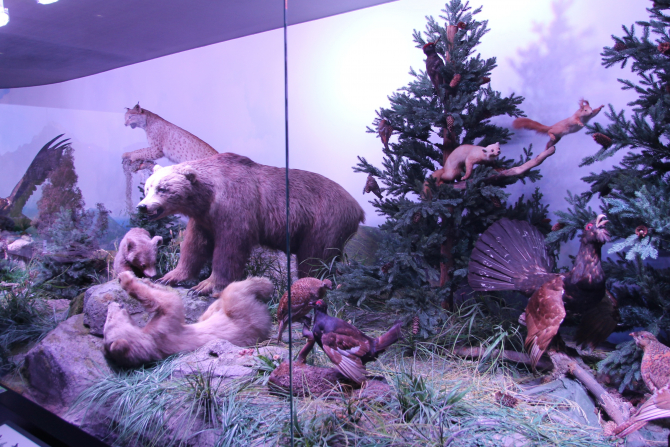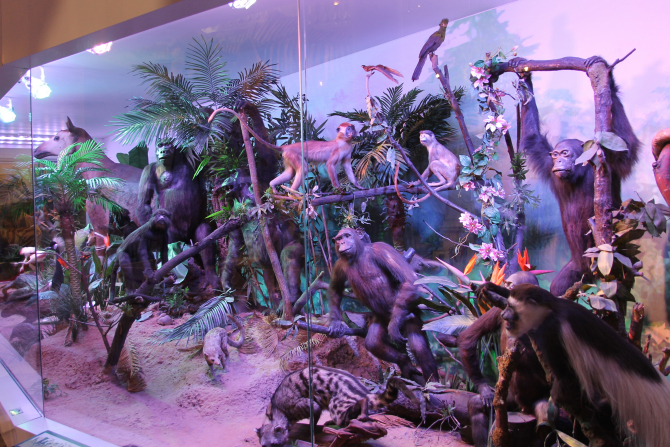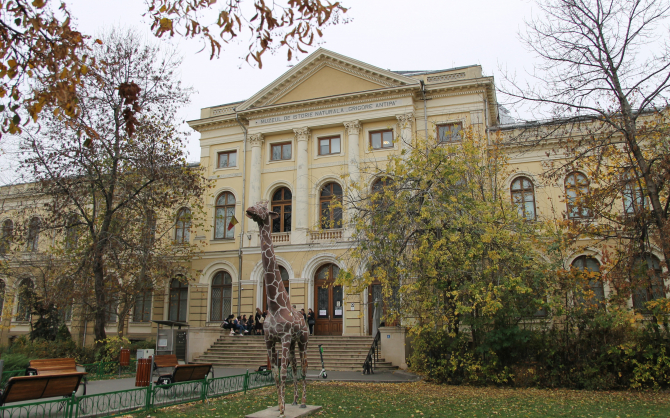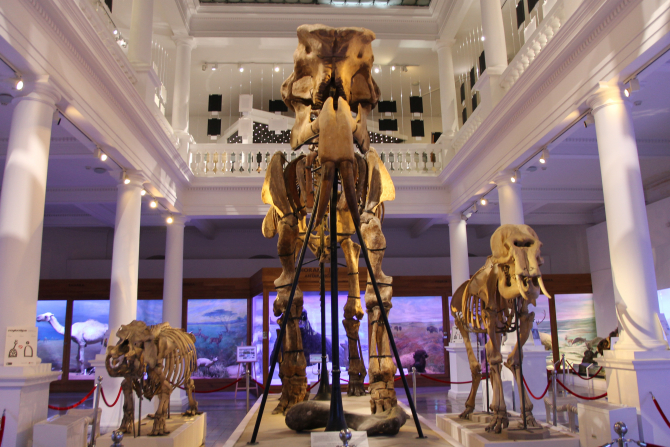Even though she is 40 years old and her daughter is 12, Natalia still wants to feel like a child, and she combines the business visits in the capital of Romanian with the pleasure of enjoying the city, especially because she works in tourism and ahe brings groups of Bulgarian tourists here. She also managed to open the appetite of several of her countrymen for a visit to „Grigore Antipa”, after telling them about the experience from the „Night of the Museums”, when she took the closing time, feeling like a character of the movie, made „live” just in that moment. In the rest of the time, the price of an entrance ticket is 20 lei, with a reduction of 50% for pensioners and 75% for students. And nobody must wait for the huge number of visitors to enter the museum, as it hapens when there opens the gates of Bucharest exhibitions at night.
Circuits for walking
In addition, tourists who come here have also a lot of things to visit the surroundings, especially if they choose a guided tour through Bucharest, traveling along the road between Victoriei Square and Herastrau Park, with stops at the Museum of Natural History „Grigore Antipa”, the Museum of Geology, which complements the first one, but also the National Museum of the Romanian Peasant, where they can also take a meal break, to taste the Romanian specific food. Then a walk on the Kiseleff Road and through the Herastrau Park is welcome, especially on a sunny day, which can end with an intrusion into the mysteries of the Romanian traditions, at the Village Museum.

Three-dimensional showcases within the Antipa Museum Photo: Crișan Andreescu

Of all these, the „Grigore Antipa” Museum has a special charm for the lovers of nature's mysteries. The permanent exhibition occupies the most important part of the space that the public can visit, each room being organized thematically. It is structured around the idea of presenting ecosystems through dioramas - three-dimensional windows, in which the species are placed on categories of habitats, in natural places and projected on a painted background - so as to offer visitors a „journey” through different geographical areas. spectacular in the country and other parts of the World. Foreign tourists have the „audio guide” available in English, so they can enjoy as much information as possible while visiting the exhibition.
The history of the museum for over a century
Many visitors are pleased to learn that the museum was open on November 3th, 1834 at the initiative of the brother of Prince Alexandru Ghica, the Great „Ban” Mihalache Ghica. He had donated important collections for the exhibition, including Greek, Roman and Byzantine coins, collections of minerals, fossils, molluscs, fish, birds and mammals, but also works of art. Although it was conceived as a cabinet of natural history, the museum has acquired a character of mixed institution, sheltering antiques, old paintings and curiosities of nature. But the current headquarters of the museum was designed and built later, by Dr. Grigore Antipa, who was also the director of the institution, from 1893 to 1944.
The first rooms of the Museum placed on Kiseleff Road were officially opened on May 24th, 1908 in the presence of King Carol I, Princess Maria and important personalities of the scientific, cultural and political world of that times. The great Romanian scholar who gave the name of the museum managed to bring to Bucharest a modern institution, both through the exhibition and through its role and activity. With great efforts, Gregory Antipa has substantially enriched the collections of the museum with very valuable exhibitions from all over the World. The scientist also made the biogeographic dioramas for the first time in Bucharest, the model being then taken over by the world's great museums. Recognizing the merits of the scientist, King Carol II decided to give the museum the name of the scientist.
One of the attractions of the Antipa Museum Photo: Crișan Andreescu
The Antipa Museum has remained one of the attractions for the children who love the nature, and they enjoy the famous dioramas, which helps them to dream of good places to visit later. One of their great joys is to play in the cave reproduced here almost in natural size, where they learn what stalactites and stalagmites are, understand where the bats sleep or how the people of the caverns lived thousands of years ago. Also for children, the museum has many educational programs and dozens of workshops that develop their knowledge, imagination and creativity.
Natalia also enjoys, as a child, all the wonders of the museum which makes her dream of sketching every time she became a movie character. This enthusiasm has helped her to turn the Bulgarian tourists she invited to the museum into real fans and the groups where they had also children enjoyed a true excursion into the mysteries of nature and the adventure of discoveries that they will forget too soon
Fiți la curent cu ultimele noutăți. Urmăriți StiriDiaspora și pe Google News


















